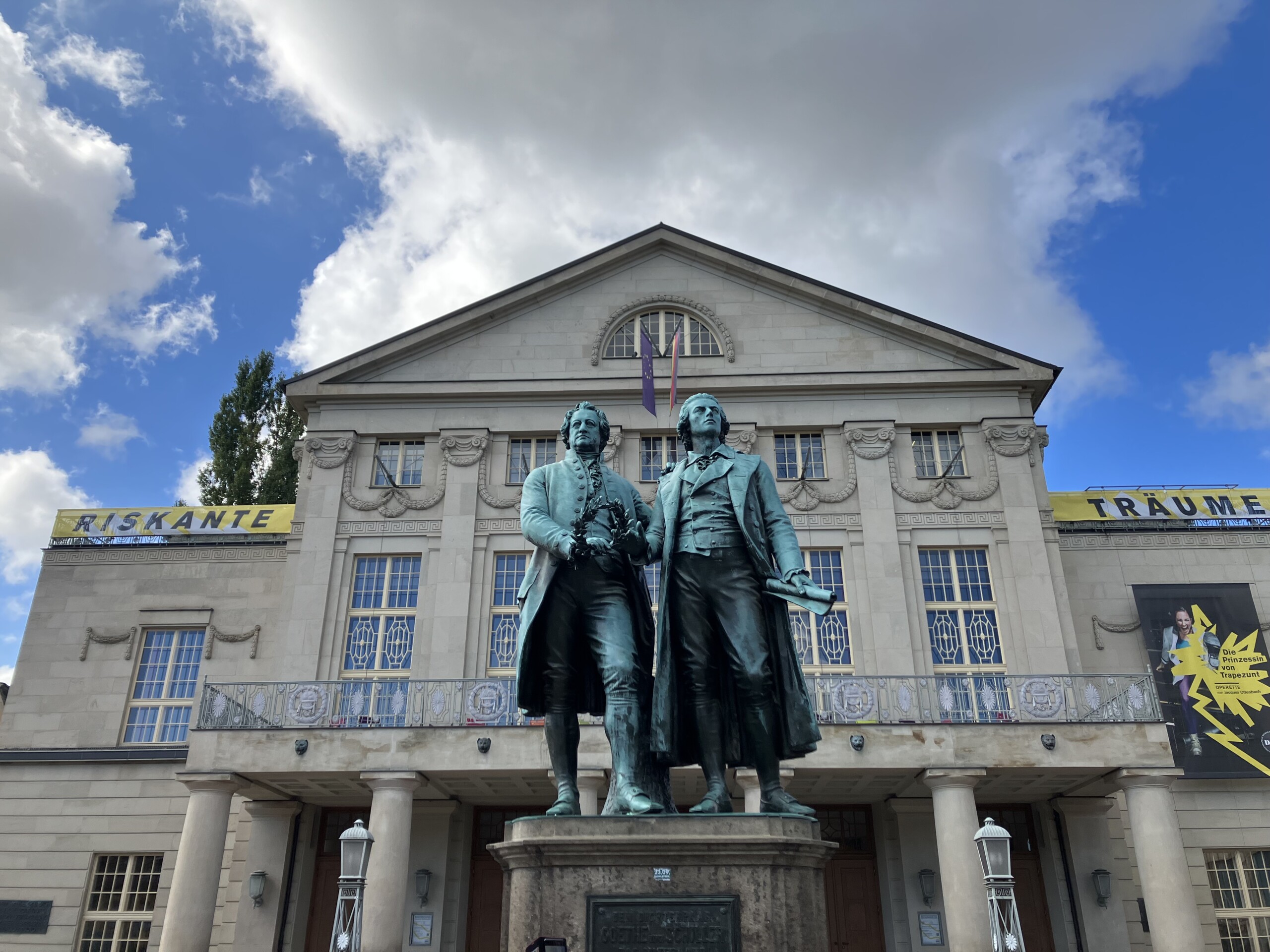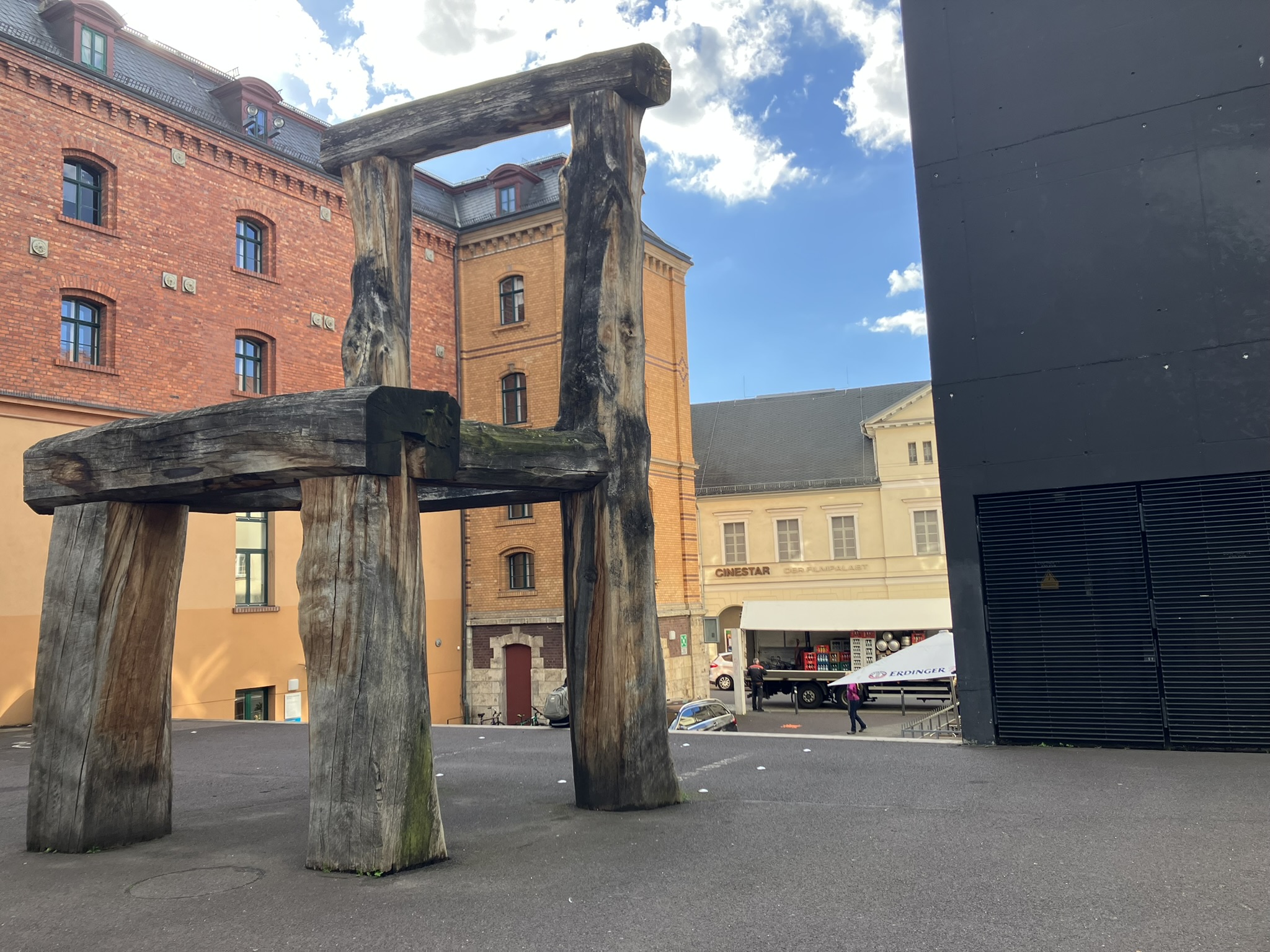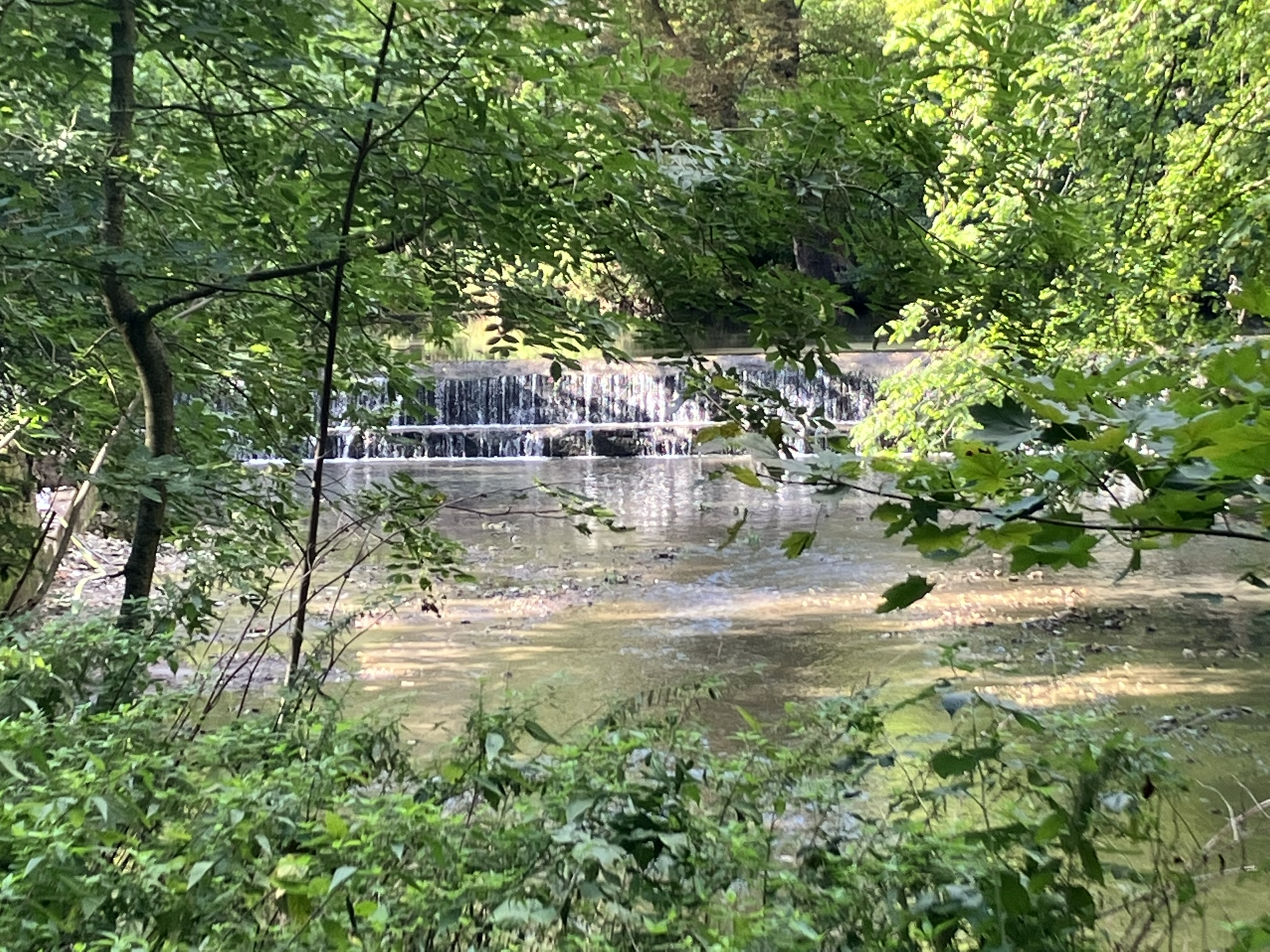Yet another beautiful German town also situated close to the Thuringian Forest and iconic as it was where Germany’s first democratic constitution was signed after the First World War. It became in 1999 the European Capital of Culture. It is situated within the valley of the Ilm river, a tributary of the Saale river I talked of in an earlier post. The terrain is hilly.
So we began our walk in the flatter part of town as we walked along the Ilm river to the village of Tiefurt. This river is one of the special parts of Weimar, as it wends its way slowly, getting wider and deeper into the forest. A couple of long weirs introduce a waterfall sound as these off-shoots make their way into a bush sheltered15 metre wide river. The trail was mostly for bikes with a large proportion of older people riding. I noticed some struggled to walk and when on the bike could travel easily for miles.
As we wandered up from the river through the town we saw a statue of two men with a bunch of excited young people crowded in front of them for a photo shoot (later, as I was doing some reading around the life of Schiller, I imagined that these children were into culture in their own way because this man was considered by most Germans to be Germany’s most important classical playwright). The other man was Goethe. They were good friends and developed a close and productive relationship where Schiller was able to convince Goethe to finish some great works.
Schiller’s play – ‘The Robbers’, is considered to be the first European melodrama which strongly criticises the hypocrisies of class and religion and the economic inequities of German society. Verdi adapted several of his stage plays including ‘The Robbers’, for his operas. Schubert set 44 of his poems to music while Beethoven was also taken by Schiller and set his Ode to Joy to music in his Ninth Symphony. Now this same poem is the European National Anthem. At one stage Schiller gave up playwriting, but his friend Goethe convinced him to return to it. Then together they founded the Weimar Theatre which became the leading theatre in Germany, and a renaissance of drama in this country. In 2008 Schiller was voted as the second most important playwright after William Shakespeare.
We will stay a couple of days here because there is some more walking to be done and possibly I’ll have time to investigate Schiller’s poetry a bit more as we head south along the Ilm River for more inspiration. Perhaps even find a statue of a woman, and find out what she thinks of the world, or maybe it will be something else altogether.




Just wanted to add, Will, that we love the photos -very clear and picturesque. Writing any sonnets along thee way, or are you reserving that for later?
Narayan
I’m writing some sonnets, I’ll check to see what I have
Thanks again for your responses
Hello dear Will and Corrie
Thanks so much for your very informative blogs, Will. I read out the last five for Janine and will not speak for her, but realise how uneducated I am in the geography and classics that you are sharing. Janine has been looking up the various towns you are staying at, and reading about their history, which makes it all even more alive for us. Glad you survived that hailstorm!
PS Gotha sounded familiar but then I realised I was thinking of Gotham, a fictional town used for the Batman series of comics!
Happy journeying, dear friends.
Love from Janine and Narayan
Lovely to hear from you two,
Thank you for your feedback, really appreciate it
Off to Fulda tomorrow and wonder what’s in store for us there
Talk soon
Enjoying the historical connections you are making and sharing, Will. That’s the thing for us Aussies re being in Europe, eh… history that in our brains is stored as “over there” becomes more immediate.
So, is it that at this stage of your journey you are travelling (not on foot) to the various towns and then doing walks in and around the towns?
Hello to Corrie.
Yes and no Anne. We are travelling to the towns and then walking but doing that first for reasons that should make it clearer in my Day 8 post. Thanks again for travelling with us, we always enjoy your company
Talk soon
Will